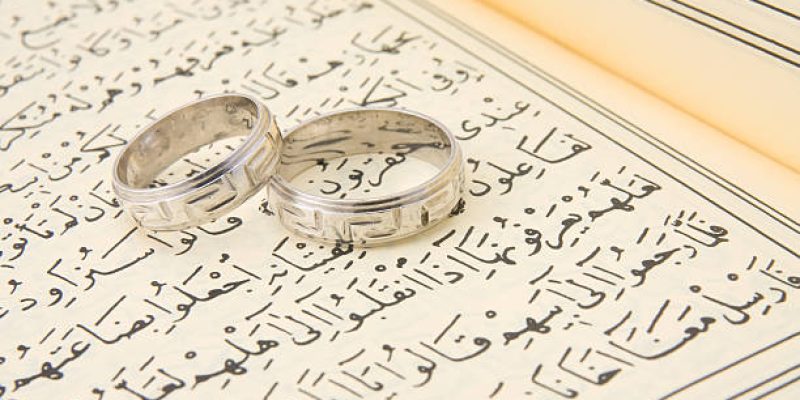The concept of polygyny has long sparked debates in the Muslim community. In fact, polygyny in Islam has been a matter of debate across the board. This matter has been conflated to such a large point that it is now a constant debate among Muslims too.
Some people wonder if these discussions are even necessary. On the other hand, it is necessary to understand Islamic values so we can pass them on to our children. Regardless of your opinion on this matter, it can help to have a clearer understanding.
With that in mind, let’s discuss polygyny, polygamy and spousal relationships in Islam.
Read More: Getting Into The Habit & Completing The Quran During Ramadan
Read More: How To Get Your Duas Accepted
What It Is: Polygamy, Polygyny and More
When discussing the issue of plural marriages in Islam, most people tend to use the word Polygamy. It is high time we stop using this word and use polygyny in its place. There are many reasons why we should ensure that we use the right words when we speak. Still, before we get to that, let’s take a look at the definitions of these words.
- Polygamy: This refers to the practice of marrying multiple spouses. Additionally, this includes both men and women and is not allowed in Islam.
- Polygyny: This means for men to marry more than one wife at a time. Like it or not, it is allowed in Islam.
- Polyandry: When a woman is married to more than one husband at a time. It is not allowed.
- Monogamy: Monogamy is a marriage between a husband and a wife. Highly recommended in Islam as we will find out soon.
Now we have explored some of the basic terms surrounding this topic. It is clear enough and does not require further definitions. With that out of the way, let’s dive into what Islam says about this.
Polygyny in Islam
As we explore plural marriages in Islam, it is ideal that we should start with the right verse.
وَإِنْ خِفْتُمْ أَلَّا تُقْسِطُوا۟ فِى ٱلْيَتَـٰمَىٰ فَٱنكِحُوا۟ مَا طَابَ لَكُم مِّنَ ٱلنِّسَآءِ مَثْنَىٰ وَثُلَـٰثَ وَرُبَـٰعَ ۖ فَإِنْ خِفْتُمْ أَلَّا تَعْدِلُوا۟ فَوَٰحِدَةً أَوْ مَا مَلَكَتْ أَيْمَـٰنُكُمْ ۚ ذَٰلِكَ أَدْنَىٰٓ أَلَّا تَعُولُوا۟
Surah An- Nisa, Verse 3. The translation reads as follows:
If you fear you might fail to give orphan women their due rights if you were to marry them˺, then marry other women of your choice—two, three, or four. But if you are afraid you will fail to maintain justice, then ˹content yourselves with˺ one or those ˹bondwomen˺ in your possession. This way you are less likely to commit injustice.
This is the only verse in the Quran that explicitly allows men to take up to four wives. You might wonder, what orphans have to do with this topic. This is why all Muslims must learn the Quran, online or otherwise. A Quranic teacher would help to better understand the Arabic language as well as the context. Often when you feel you don’t understand something in the Quran, that means it is time to look at the revelation. So let’s find out when these verses were revealed and you will know exactly why it mentions orphans.
The Context
Surah ‘An-Nisa’ quite literally translates to ‘ The Women.’ It is the fourth chapter in the Quran, coming right after Surah Ali Imran (آلِ عِمْرَان). This is a Medinan Surah that was revealed after The Battle of Uhud, in which the Muslims lost. Not only did we lose the battle, but we lost it badly enough to leave numerous orphans in the community. Thus we can understand why the Ayah starts in such a manner.
The Explanation
The concept of a guardian or a ‘wali,’ in Islam is only to protect underage children and women. This further extends to those for whom the Pen has been lifted.
The role of such a guardian is to take care of their properties and well-being until they are old enough to do so themselves. At such a point, the guardian should hand over everything that belongs to the orphan. The Surah orders the guardians to deal daily with the orphans.
- Don’t exchange something bad of yours with something good of theirs.
- Don’t exchange your weak animals with those of the orphans’ healthy, fat ones.
- Only consume from your belongings and what you earn. Don’t tap into the orphans’ substance.
The verse continues to reiterate that doing any of the above would be a huge sin. This moves us on to the next Ayah about multiple marriages. Since there were many male and female orphans at the time, they all had guardians to care for their well-being. So long as an orphan woman is not a mahram, you are allowed to marry her. At the same time, it cautions that:
- If you fear you won’t be able to give her due dowry according to her status, then marry someone else. The beauty of the wealth of the woman may tempt her guardian to marry her. At the same time, she deserves a dowry that suits the status she grew up in.
- So the Ayah forbids such guardians to marry the women unless they can treat them with justice and give them their fair dowry.
- And, if you’re unable to provide for her thus, then you should marry another woman. Further, you can marry two, three or four wives if you can deal with them fairly.
Further Understanding
That last verse mentioned above is what explicitly allows men to have up to four wives at a time. With the condition of treating them fairly. Through some hadith, we can understand that the limit is strictly four, even if a person married more than four pre-Islam. The Prophet(PBUH) ordered a man to choose four out of his ten wives and divorce the rest. Of course, he married them before he became a Muslim, yet he has to follow the ruling.
The next verse is what most men tend to ignore while women hold on to Let’s take a look.
Dealing With Justice.
The verse goes:
فَإِنْ خِفْتُمْ أَلاَّ تَعْدِلُواْ فَوَحِدَةً أَوْ مَا مَلَكَتْ أَيْمَـنُكُمْ
This translates to:
But if you fear that you will not be able to deal justly (with them), then only one or what your right hands possess.
This ayah is very clear about doing justice between your wives. Further, it cautions against marrying more than one if you fear that you might not be just. The key is to treat all wives equally.
The Right Of Wives
Wives, whether one or four, has rights upon her husband in Islam. This means that he has to fulfil certain responsibilities towards her.
- Financial Rights: Dowry (Mahr), Spending, Accommodation.
- Kind Treatment
Let’s explore these topics further.
Financial Rights of Wife(s)
The Mahr is the first financial right of the wife. The couple are online considered married after the husband provides the dowry to the wife. She is entitled to money, jewellery, or other things of her choice. The Mahr is given to ensure the safety of the woman in case she’s widowed or her husband is abusive. Her Mahr will help her get out of these situations and give her a sense of safety. Thus it is necessary to choose your Mahr carefully and plan for your future.
In addition to the above, it is obligatory for the husband to spend on his wife or wives. This is in addition to providing for her which means putting food on her table and giving her accommodations. The conditions for this are simple:
- The husband should spend on his family according to how Allah has blessed him. He is neither allowed to be stingy nor extravagant.
- He is responsible for her clothing as well as the expenses of any child they might have together.
Finally, regarding accommodation, the husband is responsible for preparing it before they are married. The conditions are:
- The husband should provide accommodation to the wife according to his means.
- A rich man should provide what he can while the poor man should provide the best of what he has been blessed with.
- A man is not allowed to make anyone live with his wife such as his mother or father. His siblings, especially brothers are entirely out of the question. This is also true if he has sons from his other wives.
- If the husband is unable to afford a home, he should ensure that she has a separate entrance to her living room. Further, her bedroom, bathroom and kitchen should be private and hers alone.
When Culture Clashes with Religion
The rules mentioned above as the rights of a wife apply to all wives too. A man cannot make his wives live with his other wives either. Additionally, he must be fair in every way with all his wives.
With these conditions, polygyny is allowed in Islam. At the same time, some cultures, where it is not common may clash with the religion. The best course of action is to rely on Allah, do Isthikhara and pray for guidance.
Read More: Deep Reverence and Immense Love for the Holy Quran
Read More: Quran Verses that Can Help Us Overcome Difficulties
Conclusion
Undoubtedly, Islam allows Polygyny. At the same time, there are certain conditions to be met. And we are cautioned against marrying more than one when there’s even the slightest fear of injustice. To understand these concepts better, you need to learn the Quran Online. At Quraan Teacher, we offer lessons for people of all ages. Our hope is to help people living in non-Muslim countries to access and understand the Quran better. So get in touch and schedule your first lesson.

